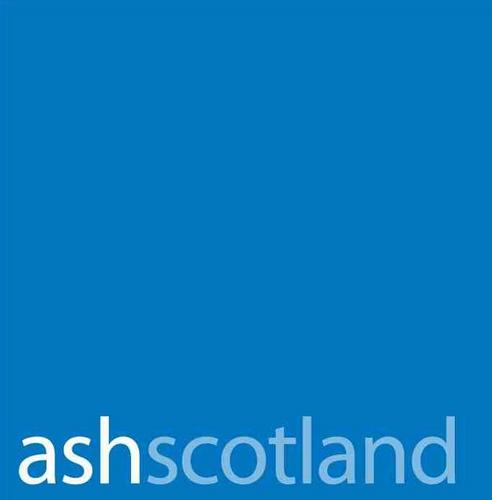 |
| Will we see vape-shops like this in Norway soon? |
However, until then several member states are working on their own regulations that might be implemented before the TPD. In Wales they are talking about banning e-cigarettes in public, there are debates on regulating advertising in the UK and Spain has already implemented a ban on use in public places with devastating effects: http://goo.gl/SDBxRG
Apparently governments see the need for making their own regulations prior to the TPD. The reasons for this might be that they want regulations in place earlier, maybe to ensure control of the market and the money involved at an earlier point, but the TPD also leaves a lot up to the member states so some of these regulations can co-exist with the TPD when this is implemented. For example the TPD allows member states to decide that they want to regulate e-cigarettes as medicines, something that was pointed out by a Norwegian health official in a recent TV-debate on the subject. Some governments might also expect changes to the TPD and are not sure how it will affect them in the end, as the war is by no means over yet. The EU even states that they will monitor the development and that changes might occur. As more and more evidence is stacking up and scientist are engaging in the battle, putting their careers at risk criticizing the WHO's stance on e-cigarettes for being counter-productive and undermining public health (read the Asthray blogs post on the matter: http://goo.gl/TdOMPZ), who knows where this will end? And economic crisis and general scepticism towards the EU might even have left some members unsure of the future of the EU.
So what about Norway? What is happening here? I asked Research Director Karl Erik Lund what the Norwegian government is doing about it right now. The Ministry of Health and Care Services has now asked underlying agencies for reports on the matter:
- The Norwegian Institute of Public Health will assess the potential harm from e-cigarettes.
- The Norwegian Medicines Agency will look at whether electronic cigarettes can be considered to be medicinal products.
- The Norwegian Directorate of Health has been asked to come up with possible regulation models and has in turn asked SIRUS (The institute for Alcohol and Drug research) for assistance.
I'm happy to see that SIRUS is asked for assistance concerning the regulation models, as in my opinion they are very focused on harm reduction. Karl Erik Lund was also one of the 52 signatories that just wrote a letter to the WHO asking them to start consider harm reduction alternatives (such as e-cigarettes) as a solution, not part of the problem: http://goo.gl/b5usNv.
Lund says it will be interesting to see what perspective the Institute of Public Health will chose to use when assessing potential harm. Lund mentions three different potential perspectives:
Traditionally the government has used a bio-chemical reductionist perspective regarding snus and e-cigarettes, meaning they look at chemical contents, acute physiological effects and potential long term physiological effects. If they then find any reason to believe that the e-cigarettes are not totally risk free they can use that to defend a restrictive policy based on the non-harm principle (we should not facilitate something that has potential harm), precautionary principle or loss-of-autonomy principle (risk of nicotine addiction).
Alternatively they can choose a comparative perspective where the harm potential is compared to the harm of cigarettes. Because the two products have the same consumer groups one could defend such perspective. However the Ministry of Health has explicitly stated that the harm potential from cigarettes should not be used as comparison when assessing the harm potential from SNUS (Swedish smokeless tobacco). We might expect the same for e-cigarettes? This will amputate the institutes risk assessment.
The third perspective is the public health perspective that looks both the risk differences between cigarettes and e-cigarettes and at the relative recruitment and use among smokers and non-smokers. For SNUS it is obvious that easy access to the product has led to a net gain in public health, but this is a fact that is difficult to admit for the government. The tobacco-hostile norm climate makes rational approaches difficult.Although I think it is a positive think that SIRUS has been asked to assist in the work on regulation models I do feel they should be listened to when it comes to the harm potential assessments as well. I fear that the Institute of Public Health will choose the first perspective when doing the assessment, and that they will come up with something that shows some kind of potential harm, or at least something that says we can't rule it out. And traditionally they love the precautionary principle, something that in this case could prove a danger to public health. I think 2014 will be a year where we will see a lot more debates on the topic, and most people here are now aware of e-cigarettes, and will start making up their opinions on them if they don't have them already. Hopefully more and more scientists will speak up and may manage to get some positive media coverage. I guess we have to expect some negative media coverage as well, so I hope the good work of SIRUS and the Norwegian vaping community in commenting and ripping these stories apart will continue. But, as I have stated over and over again, the vapers stories will be crucial to how the general public's views on the matter. A lot of vapers are doing a great job already, and hopefully more will join. Let's try to make 2014 the year everyone was talking about vaping.
photo credit: A.Currell via photopin cc














